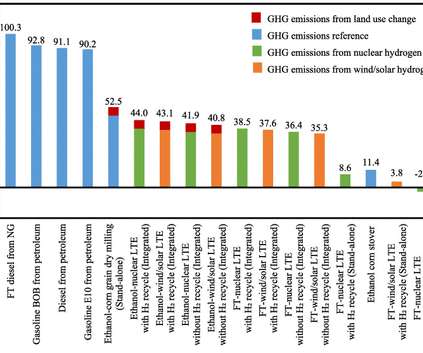Argonne study shows range of GHG reductions for electrofuel Fischer-Tropsch; up to 108% reduction
Green Car Congress
MARCH 8, 2021
with and without H 2 recycle); and two different system boundaries: a stand-alone plant (with CO 2 from any source) and an integrated plant with corn ethanol production (supplying CO 2 ). This study highlights the sensitivity of the carbon intensity of FT fuels to the system boundary selection (i.e., —Zang et al. 0c05893.












Let's personalize your content